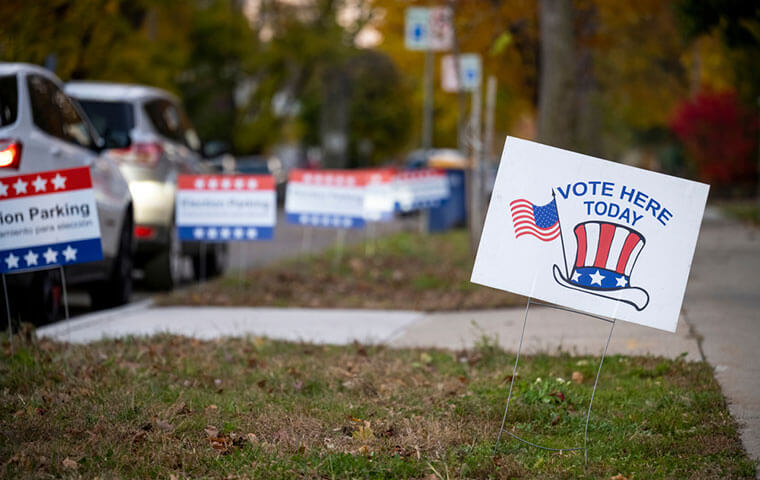 OPM: Agencies are to allow up to four hours of paid time off per election event. Image: Ayman Haykal/Shutterstock.com
By: FEDweek Staff
OPM: Agencies are to allow up to four hours of paid time off per election event. Image: Ayman Haykal/Shutterstock.com
By: FEDweek StaffAs a reminder, OPM earlier this year revised and expanded previous policies on administrative leave–paid time off without charge to any other form of leave–for federal employees to vote or to serve in certain types of work at polls.
The March 24 memo told agencies that they should allow up to four hours of paid time off per “election event”—including primaries and caucuses in addition to a general election—for elections at the federal, state, county, municipal, tribal or territorial level. “This administrative leave may be used for voting on the established election day or for early voting, whichever option is used by the employee with respect to an election event,” it says.
Further, agencies are to allow up to four hours of administrative leave per leave year for an employee to serve as a non-partisan poll worker or to participate in non-partisan observer activities at elections, in addition to any leave an employee uses for voting.
The memo carried out a 2021 executive order which among other things called on OPM to expand opportunities for federal employees to vote, including to participate in early voting, and to better support employees who want to volunteer for election-related work.
Under prior policy, if polls were not open at least three hours either before or after an employee’s regular work hours, supervisors could grant a limited amount of excused absence allowing the employee to report for work three hours after the polls open or leave from work three hours before the polls close, whichever required less time off. Agencies could grant excused absence for early voting only if the employee would be unable to vote on the day of the election because of activities directly related to the agency’s mission such as travel and who could not vote by absentee ballot.
The prior policy had no specific authority for taking leave for poll watching or working, although in a memo ahead of the 2020 elections OPM told agencies that they should “try to accommodate” employee requests for administrative leave for those purposes so long as there would not be “negative impacts to critical missions.”
Decisions on Federal Workplace Issues Remain Before Congress
At FBI, the Higher the Level, the Lesser the Penalty for Sexual Misconduct, Senator Says
Review of Marijuana Policy Could Have Implications for Federal Workplace
Enrollee Share of FEHB Premiums to Rise 8.7 Percent on Average for 2023
OPM Addresses Drivers of Premium Hikes, Upcoming Coverage Changes in FEHB
Effort to Ban a New Schedule F Ratchets Up in Congress
Administration Urged to Extend Waiver in Loan Forgiveness Program
See also,
Employees Value TSP, Annuity, FEHB Most Highly, Survey Finds
Did FERS Actually End the CSRS “Golden Handcuffs” Effect?
Report Assesses Impact of Repealing Windfall, Offset Provisions
With FERS Annuity Indexed for Inflation, Fed Retirees Faring Better

